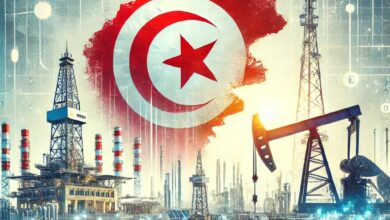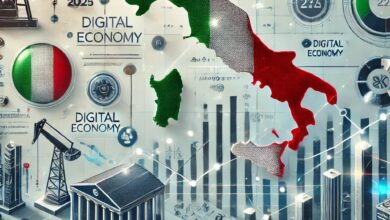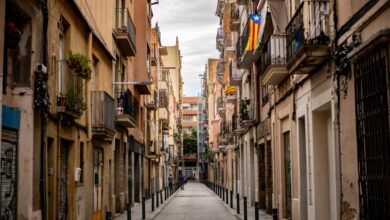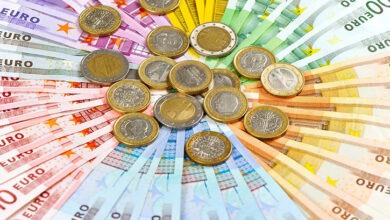Algeria- Italy: The axis of change in the Mediterranean
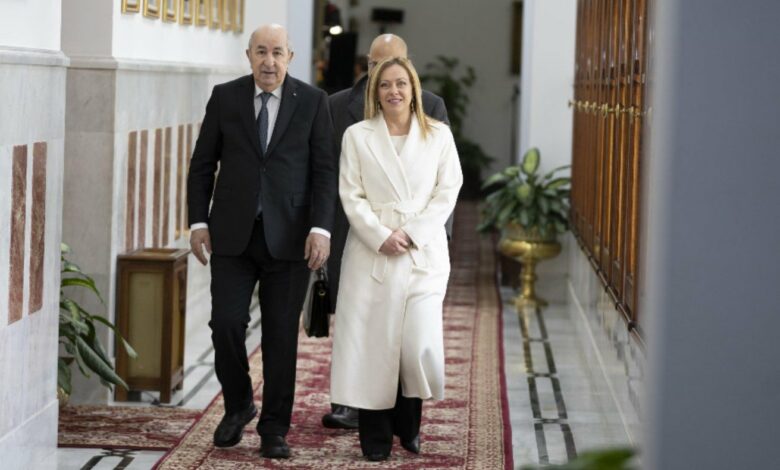
With the recent landmark energy agreements signed with Algeria, Italy has secured enough energy supplies to significantly reduce dependence on Russia at a time when Europe is grappling with a serious energy crisis exacerbated by the war in Ukraine.
The economic indicators registered over the last two years indicate that trade ties between the two nations are warming up with bilateral trade exceeding USD 4.3 billion in the first 5 months of 2022. With the escalation of war in Ukraine in the second half of the same year, Italian leaders flocked to Algiers in order to increase their energy share in the Algerian market. Trade between the two countries increased from USD 6 Billion in 2020 to USD 8 billion in 2021 and to USD 16 billion in 2022.
These warming economic ties have been matched by a warmer exchange of diplomatic praise in the successive visits of Italian leaders to Algiers. In her recent visit to Algeria on January 23rd, 2023, which was crowned with important energy agreements, Italy’s Prime Minister Giorgia Meloni praised Algeria as “Italy’s ‘most stable, strategic and long-standing’ partner in North Africa,” France 24 reported.
During Meloni’s two-day visit, an agreement was signed between the two Mediterranean nations to study and construct a pipeline that would transport “gas, hydrogen, ammonia, and electricity” from Algeria to Italy, which would turn the latter into an energy “hub” in Europe, according to Algeria’s President Abdelmajid Tebboune. This pipeline, which would be added to the already existing trans-Mediterranean pipeline relating the two countries via Tunisia, crowns decades of warm ties between the 2 nations and stands witness to changing relations between the Northern and southern banks of the Mediterranean.
The ties between Algeria and Italy date back to the Algerian struggle for independence (1954-1962), which was supported by the Italians. During the 1990s, known in Algeria as the “Dark Decade” and as the “Algerian Civil War,” many foreign companies left the country. Italy’s energy giant, ENI, whose current boss Metteo Descalzi accompanied Meloni in her trip, decided to stay.
In her trip, Meloni wanted to capitalize on that independence war legacy. She stopped at a garden in centre Algiers dedicated to ENI founder Enrico Mattei, who supported the Algerian resistance in their fight for independence, after she laid a wreath at the Monument of Martyrs, commemorating Algeria’s hard won independence fight.
If Italy is playing an important role in Algeria these days, it is because both Spain and France cannot. In a recent article, I discuss how Spain is swaying towards Morocco in the crisis over the Western Sahara at the expense of its privileged relations with Algeria. As for France, its place in the Algerian collective memory is plagued by its status as a former colonial power whose withdrawal from the North African country cost the Algerians an 8-year bloody war and millions of lives.
Business is not made with hearts but rather with minds, and in so many Africans’ minds, France has maintained interventionist foreign policy in the continent. This mindset is attested to in the recent demonstrations in Mali, Burkina Faso, and other African nations whose leaders joined in the calls on France to pull their military out of their territories. That Meloni is received as a hero in Algeria is no fluke. The Italian Prime minister, in a 2019 video that resurfaced recently, sounded like an African when she, drawing on this view of France, criticized French “colonialism.”
In that speech, she accused France of using the CFA Franc currency, printed in France, in order to exploit the resources of 14 West African nations. “So the solution is not to bring Africans into Europe, but rather to free Africa from some Europeans who exploit them and allow these people to live with what they have,” she said in that speech.
In opposition to this “predatory” and interventionist policy, Meloni has argued that Italy needs to cooperate with African states in suh a way as to contribute to their growth and development. When she took office few months ago, she pledged to follow a “Mattei Plan” for Africa, styled as win-win policy for both Italy and Africa. The plan is named after Metteo Descalzi who challenged the hegemonic aspirations of Anglo-American energy aspirations.
Franco-Algerian relations tend to be strained over the legacy of the independence war; and with Meloni’s promise of following a long forgotten Mediterranean policy, it seems that Algeria is at the centre of this policy. Through these agreements, Algeria aspires for more Italian assistance and cooperation in matters of health, agriculture, and technology.
These changes indicate a shift in influence in the Mediterranean towards the southern bank of the sea where energy and immigration are the two factors determining power relations. If Algeria has played the energy card, Morocco and Libya have played the immigration one and Tunisia plays none.
Turning towards the Mediterranean might be at the expense of Europe for history teaches that the two tend to be mutually exclusive. Although they have benefitted from the Russia-Ukraine war, the Algerians have maintained solid relations with Russia that go back to the Cold War period. With the U.S. acknowledgement of Morocco’s sovereignty in the Western Sahara, Algeria is pushed further to the East. Meloni’s Mediterranean policy is pushing Italy to the South and to the East towards a bygone past where Italy was a major player in the Middle East.

